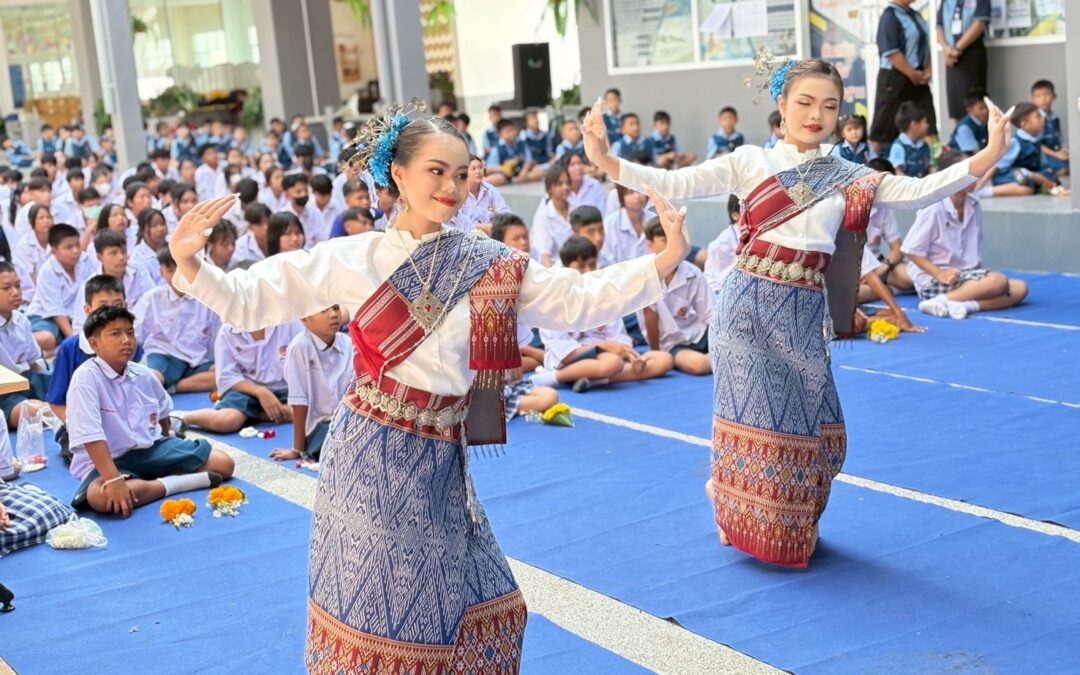In a world that often rushes forward in pursuit of the new, Thailand remains a country deeply rooted in its traditions. One such tradition, quietly yet profoundly observed in schools across the nation, is Wai Khru Day (วันไหว้ครู) — the day dedicated to paying respect to teachers. More than just a school event, Wai Khru is a heartfelt cultural ceremony that speaks to the deep reverence Thai society holds for educators.
At Phawoot Witaya School, and all around the country, the ceremony is held annually at the beginning of the academic year — usually on a Thursday in June — Wai Khru translates directly as “Teacher Appreciation Day” or more literally, “the day to pay respect to teachers.” But its significance runs much deeper than the name implies. For Thai students, this ceremony is not just a formality; it’s an emotional and symbolic moment to express gratitude to those who guide them intellectually and morally.
The roots of Wai Khru stretch back hundreds of years and are influenced by both Buddhist and Brahmin traditions. In Thai culture, the concept of a “ครู” (khru), or teacher, encompasses not only formal school instructors but also mentors, spiritual leaders, and anyone from whom one has learned something valuable. The ceremony reflects the importance of humility and gratitude in Thai society — two values that are central to a respectful life.

The Wai Khru ceremony at Phawoot Witaya School typically begins with our students sitting respectfully, often in traditional uniforms, in front of their teachers. The highlight of the event is the offering of flower arrangements — not just any flowers, but ones chosen for their symbolic meanings. For example:
- Dok Khem (needle flower) represents sharp wit and intelligence.
- Ya Praek (Bermuda grass) signifies perseverance.
- Eggplant flowers represent humility, as the flower bows down when in bloom — a metaphor for respecting teachers.
These floral offerings are usually arranged on a tray with candles and incense, and students present them to their teachers as a sign of appreciation. Teachers, in turn, give blessings for academic success, good behaviour, and personal growth. In some schools, the ceremony is accompanied by traditional chants or the recitation of a “Wai Khru” pledge that emphasises respect, discipline, and dedication to learning.
What makes Wai Khru Day so special is its emotional sincerity. In a society that holds the teacher-student relationship in high regard, this day allows for a pause — a moment of mutual reflection and reconnection. It also helps to set the tone for the school year ahead, reminding students that learning is not just about passing exams but about developing character and honouring the people who shape their future.
In an age where education can sometimes feel transactional, Wai Khru is a powerful reminder that teaching is not just a job — it’s a noble calling. Teachers are not merely facilitators of knowledge; they are sculptors of human potential. And in Thailand, once a year, that truth is celebrated with flowers, tradition, and genuine respect.
We’d like to thank our Management, our students, our parents and all the amazing students for their support every year.

